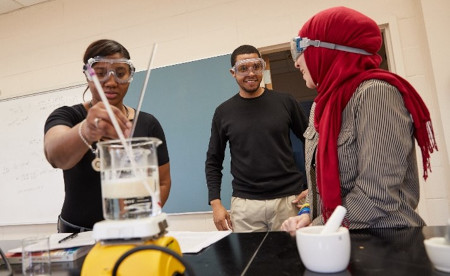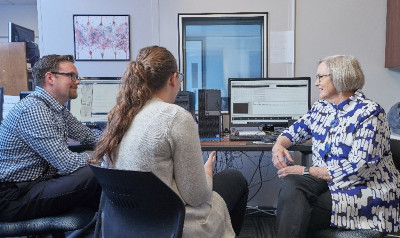Graduate School
Maximizing Your Grad School Journey with Graduate Assistantships
 What is a Graduate Assistantship?
What is a Graduate Assistantship?
Graduate assistantships are positions offered by departments or other campus units, where students engage in various tasks that support the institution's academic, research, or administrative functions. These roles generally fall into three categories:
- Teaching Assistantships (GTA): TAs assist in undergraduate instruction, which may include leading discussion sections, grading assignments, or even teaching courses under the supervision of a faculty member. Advanced graduate teaching assistants may even teach their own course.
- Research Assistantships (GRA): RAs work on specific research projects, often aligned with their field of study, providing hands-on experience in conducting research, data analysis, and co-authoring papers.
- Administrative Assistantships (GAA): These positions involve supporting university departments or programs, offering a glimpse into the inner workings of higher education administration.
Financial Benefits
One of the most immediate benefits of a graduate assistantship is financial support.
Full-time assistantships cover tuition, fees, health insurance, provide a stipend
(the amount varies by department), and require the student to work 20 hours per week.
Part-time assistantships may include some tuition (the amount varies by department)
and a stipend (the amount varies by department). Part-time assistantships require
5-10 a week. Health insurance is not included.
Professional Development
Assistantships are a gateway to professional development, providing practical experience that future employers highly value. Teaching assistantships enhance communication and public speaking skills, essential in academic and non-academic careers. Research assistantships offer direct involvement in cutting-edge research, equipping students with technical skills and a strong research portfolio. Administrative roles develop organizational, managerial, and problem-solving skills that are transferable to various career paths.
Academic Enrichment
Working closely with faculty members through assistantships offers a unique mentorship opportunity. These interactions can lead to collaborative projects, co-authored publications, and strong professional networks. Being involved in research or teaching also deepens your understanding of your field, as explaining concepts to others or investigating new research questions reinforces and expands your own knowledge base.
Personal Growth
Beyond academics and professional development, assistantships foster personal growth. Balancing work and study responsibilities hones time management and multitasking abilities. The challenges faced in these roles can build resilience, adaptability, and confidence, preparing students to tackle future endeavors with greater assurance.
Building Community
Assistantships often place students at the heart of the university community. As a TA, you'll interact with undergraduates and other TAs, fostering a sense of community and belonging. RAs collaborate with fellow researchers and lab members, creating a supportive network of peers. Administrative roles connect you with various stakeholders within the university, broadening your understanding of the institutional ecosystem.
How to Secure a Graduate Assistantship
Graduate Assistantships are limited and highly competitive.
Departmental graduate assistantships are typically awarded at the time of admission
by the department. Department graduate assistantship funds are, unfortunately, limited.
In addition, graduate assistantships are awarded based on merit. Only the most outstanding
students are considered for graduate assistantships. Start by researching assistantship
opportunities in your department. Reach out to faculty members whose work aligns with
your interests and inquire about potential openings. Tailor your application materials
to highlight relevant skills and experiences that may increase your chances of obtaining
a graduate assistantship offer. For instance, if you have teaching experience, highlight
that in your application material. Don't hesitate to showcase your enthusiasm for
contributing to the university's mission.
Graduate Assistantships in non-academic units: Occasionally there are graduate assistantship positions open in units such as athletics, the office of student disabilities, the writing center, and other units on campus that provide support for students. These positions are typically graduate administrative assistantships. When available, these can be found through the Student Employment website here.
Graduate assistantships are more than just a means to an end; they are an integral part of the graduate school experience. They provide financial relief, professional and academic growth, personal development, and a sense of community. By fully engaging in these roles, graduate students can enhance their educational journey and set a strong foundation for their future careers. So, if you're considering or currently enrolled in graduate school, explore the assistantship opportunities available to you – they might just be the key to unlocking your full potential.
